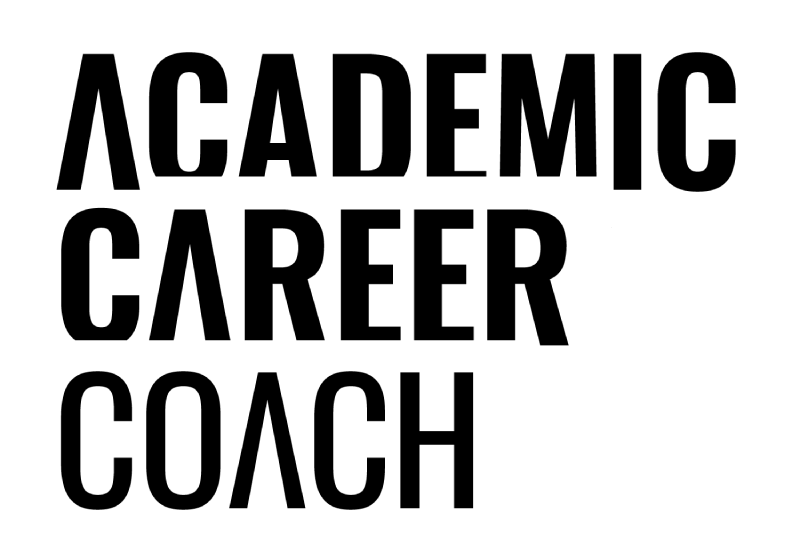This is blog #5: Bringing yourself to the party -a strategy to rock your PhD. In March 2022, I delivered a guest lecture for some (research) master students of the RUG Honours College who are considering a PhD position.
I designed a lecture focusing on their unique role in a potential doctoral program with this beautiful phrase in mind:
‘Intention is about being thoughtful and purposeful about what you want.’ (Agrawal, 2018).
Stimulating them to be thoughtful about their personal and professional motivations for entering a 4-year long journey. Because having a deep understanding of who you are, leads to finding your place in life and work.
Therefore, we worked on a strategy to bring themselves to the party and rock their PhD. Thus, who are they as a person and as emerging scholars (Elangovan & Hoffman, 2021)? We started, therefore, the process of “Going In” -who am I and what do I want- to boost the process of “Going Out” -to pursue exciting research (Agrawal, 2018). This plan is a toolbox they can get back to in the upcoming years and a list of motivations that can drag them through during setbacks and moments of doubt. This blog summarizes this evening, the exercises performed, and offers additional valuable information on the topics discussed.
By sharing this information, I hope to help future PhD students to gain a sense of direction about their position in it all. Though this blog is also for those who already started a PhD but forgot to bring themselves to the party, it is never too late to get the party started.
Due to the challenging time restriction of this two-hour lecture, I approached it as a boot camp. A boot camp comes with a coach (check!) and a training schedule to build endurance, strength, and focus. A PhD trajectory equalizes an Olympic one with having four years of doing a lot of work in the dark to put yourself in the light, revealing a top performance. Ready? Let’s go.
Warming up
Do you know that song Shake it off, by Taylor Swift? A perfect single to warm up and shake some important thoughts off as a person, academic, and future PhD student. Then, what are these thoughts, these feelings you unquestionably need to shake off? Community Architect Radha Agrawal (2018) calls them the “mean girls” sheltering in your mind; these thoughts keep you away from performance, productivity, openness towards peers, and knowledge.
- Comparison
- Perfectionism
- Judgment
These well-known thoughts within academia will counteract your PhD journey. Comparison separates you from stimulating peers; perfectionism makes you criticize and opposes progress [perfect is the enemy of done], and judgment flourishes negativity. Furthermore, they rule out your authentic self and, therefore, your creativity, innovativeness, and research capabilities. Comparison, perfectionism, and judgment cause emphasis on what others are saying and doing and keep your precious focus away from yourself and your research. Shake them off!
According to Agrawal (2018), the “soul sisters” can leave the “mean girls” in the back of your head or even further stashed away. They will encourage you, and they will energize you:
- Inspiration
- Gratitude
- Curiosity
Every time you feel driven away from your process, start comparing yourself to others, and when perfection steps in, these “soul sisters” will get you back on track.
Now, sit with these words for a while: what do they mean to you?
Life is about creating meaningful activities which inspire and keep your curiosity going. Daring to define what that means to you and act on it raises your level of gratitude towards what you may do. Besides, in time it grows your level of self-confidence while the “mean girls” increase insecurity.
Building blocks
During your doctoral program, you can rely on three resources: Time, Energy, and Focus.
Time
According to philosopher Joke Hermsen (2015), we can distinguish two types of time: time as felt on a personal level (Kairos) and clock time (Chronos). Today you might work from 9 till 5 (Chronos), following the universal standards, norms, and mores of the time, but it may feel like time slips through your fingers or vice versa (Kairos). The way you sense time has a lot to do with to what extent you created a rhythm that resonates with your wants and needs, taking into account preferable time slots to focus and leaving time for further interests. So, it is about discovering your rhythm within the dominant structure of academia. Like Canadian speedskater Laurent Dubreuil, who decided courageously against all odds to limit his training to only mornings, enabling him more rest and time to spend with his family, led to many victories on ice, including an Olympic medal.
What about your rhythm? Does it resonate with your wants and needs?
Energy
Energy has lots to do with letting go of the “mean girls,” allowing in the “soul sisters,” and being confident in generating consistency when it comes to time. Be sure to build in those energizing moments in your rhythm.
Focus
Our last resource is focus. Focus is about being disciplined, goal-oriented, and purposeful (Brabazon, 2020). Discipline is about getting all the basics in the right place and acting on them, using the “soul sisters.” It relates to showing up, meeting deadlines, being reliable, thus: getting your sh*t done. For the less well-ordered ones among us, keep this rule in mind: every day the doctoral program lasts longer than the deadline, the chances of finishing diminishes. Goal-oriented is not about working with never-ending to-do lists but is about focusing on those one or two things that need finishing this week. So, finish that article, complete that conference paper, update your online profiles, and make that dissertation happen. Before diving into purpose, I want to stress a significant aspect during a doctoral program, if not in life: motivation.
Personal and professional motivations
Tara Brabazon, professor of cultural studies, created a vlog about the ten characteristics of the best PhD students. She also made one of the most challenging ones to supervise, but I hang on to the optimistic view for now. The first characteristic is ‘commitment and motivation.’ She encourages you to sit down and list your ten reasons for completing a PhD. A list you will hang up in plain sight so it can help you through tricky times facing setbacks and doubts (Brabazon, 2020).
Motivate yourself: list ten reasons for completing a PhD.
Being purposeful is part of the focus, and it relates to the phrase this lecture works with: ‘Intention is about being thoughtful and purposeful about what you want’ (Agrawal, 2018). The purpose is what you wake up for; your motives for getting out of bed. And these motives are connected with your core values. Values are ‘your non-negotiables in life,’ ‘the lens through which you judge what is important’ (Agrawal, 2018), and they help define how to spend your time. Whereas the list with the ten motivations for completing a PhD serves as professional why’s, values are personal why’s. And somehow, they have to interact to succeed in what you do. Being thoughtful about the why’s supports the what; the what you want or are doing.
So, what motivates you to rise and shine each morning? Note that reasons like the alarm, in need of coffee, etcetera do not count. The motivations are about values like reading to learn new things (value: learning). As our usual labels [nationality, marital status, job] serve as directions for others, values are our directions. If our values are in place, they can function as our new north, our individual framework, making much more manageable and meaningful decisions.
Why do you get out of bed? List three reasons.
You can prolong using these building blocks during your doctoral program to keep training your endurance, strength, and focus. Endurance strongly relates to the ten reasons for completing a PhD; hanging this list in plain sight will work motivational. Strength comes from the fact that you learned about what you want and, more important: the reasons why. After identifying your motivations, it gets easier to be(come) disciplined, goal-oriented, and purposeful. Therefore, focus makes the plan come together, enabling you to get through the doctoral program.
Cooling down
Bringing yourself to the party has everything to do with another characteristic of the best PhD student: being proactive. Instead of reacting, these students are ahead of the problems. This requires a deep understanding of who you are, having formed professional (check! the ten reasons for completing a PhD), and personal goals (check! three reasons you get out of bed) (Brabazon, 2020).
Compare your why’s and explore what stands out. Do the why’s match? In other words, is there an overlap in your personal and professional goals?
In summary, it is to understand your unique role in life and a potential doctoral program. Locate your personal and professional motivations, sort them out, and dare to imagine an affiliating journey to find your place in life and work. Then you will bring yourself to the party and rock your PhD 🤘
What is the thing you want to focus on in the upcoming months to bring yourself to the party and rock your PhD?
Take-home exercises
In their brilliant article, Professor of Business A.R. Elangovan and Professor of Sustainable Enterprise A. J. Hoffman (2021) dissects academia using William Butler Yeats’s poem “What Then?” They describe the poem as ‘a siren call for authenticity and mindfulness in making sense of our ambitions and pursuits.’ And they continue ‘to resist the gradual slide into a narrowly construed career path driven by the quest for affirmation and status.’ This career path is ‘a well-trodden and overwhelmingly prescribed one’, making the quest for individuality or bringing yourself to the party a hard one. It stresses the necessity of creating a strategy to know what you are here to do. Or, as Elangovan & Hoffman (2021) put it: ‘only with a sense of personal vocation can we undertake this self-examination in a way that taps into our deepest sense of who we are and what we have to offer.’
Their key questions for doctoral students are the ones you may take home; to chew on, to work on, and to keep reflecting on in the upcoming years of your doctoral program:
- Who am I as a person and an emerging scholar?
A VIA can help you compose an overview of who you are, based on your values, interests, and abilities.
Click here for a description and a template.
- Why am I pursuing this path?
- What kind of contribution do I want to make in my limited academic life?
Another emphasis in their article is the definition of success, distinguishing between the ‘quantitative measures of output’ (like the H-index) and the ‘qualitative sense of having contributed valuable knowledge to society’ (Elangovan & Hoffman, 2021). Discussing success is worth another guest lecture and article. Thus, for now, I encourage you also to consider the key question about valuing your unique contribution to knowledge:
- What kind of metrics do I see as relevant for measuring that contribution.
Build up focus, understand your motivations, create purposes, be disciplined, define your goals, and dare use your precious time. Or as M puts it in the movie No Time To Die: ‘The proper function of man is to live, not to exist. I shall not waste my days in trying to prolong them. I shall use my time’ (Fukunaga, 2021).
How do you want to use your time?
Please write down your mission statement: this is what I am here to do.
Feel attention. Take action. Be authentic.


